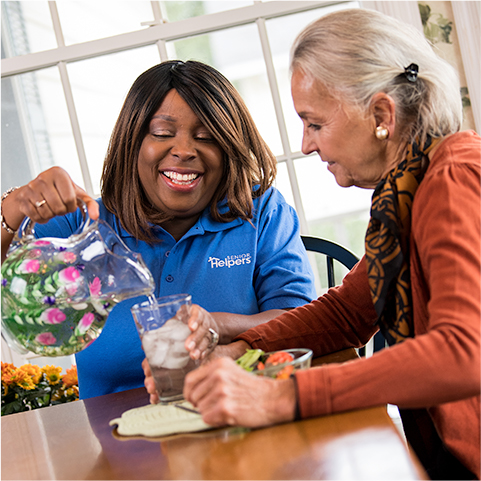Types of Home Care Services and Benefits
The ultimate goal of home care is to provide your parents with all the help they require. You don’t want them to feel embarrassed or like a burden because they need assistance with their daily activities. The type of care each senior or individual need may be different from one another. Here are some of the home care services provided by home care agencies or caregivers and the benefits.
Personal Care
Personal care is a general term that includes supporting essential personal hygiene and daily living activities, including grooming, dressing, and toileting. Caregivers are trained to help with clients’ personal care ranging from supervision to full care depending on each individual’s needs. This may include essential tasks such as bathing, mobility aids, fall risk assessment and fall prevention, incontinence and toileting care, cooking and serving meals, to more applied care, including changing position for clients that are bedbound and specialized care for those with memory loss or cognitive impairments and change in condition monitoring.
Personal home care services may also include help with social events, shopping, and other activities needed to preserve physical and emotional engagement.
Transportation
The clients’ ability to drive safely may be compromised due to slower response, trouble with night driving, and limited movement in the neck or back. If you have any aging parents or loved one experiencing any of these conditions or have been specifically instructed not to drive, then you may need someone else to take the reins.
Caregivers can take up that responsibility. They can transport your loved ones from one appointment to the other, be it shopping, going for lunch or salon appointment or even a medical appointment. Make sure you include transportation in the care plan designed for your loved one and let them relax and enjoy the ride while another person deals with the traffic.
Housekeeping
Some seniors are still capable of performing some house chores. However, some chores might prove too difficult for them. One of which is carrying a vacuum up and down the stairs and another is sweeping under chairs and sofas. Laundry might also be a challenge as they may be unable to carry a full hamper down to the basement on laundry day.
Caregivers can do all the difficult chores for them to relieve stress and help them focus on more important things to their wellness and health.
Cooking Meals
Nutrition is very important for the elderly. Most seniors are on restricted diet. However, cooking may prove to be an arduous task to a person whose joints are affected by arthritis. Lifting heavy pots and pans, cutting meats and vegetables may also be almost impossible. No need to fret.
Trained caregivers can provide assistance with grocery shopping and meal preparation and support physician-prescribed nutrition and diet plans. They take away the struggle of meal preparations and the insecurity that comes with it. You don’t want your aging parent to cut himself or burn the house down while trying to make a meal. Let a caregiver handle that.
Medication Reminders and Refills
Most seniors have several prescription medications for various illnesses such as high blood pressure, heart disease, Alzheimer’s & dementia, and diabetes. Sometimes they may forget to take their medications at the appropriate time which may lead to serious health issues.
Caregivers can eliminate the risk by making sure your loved one takes his or her medication at the right time. They can also order refills and pick them up as needed. You don’t have to worry about your parents running out on a day the pharmacy is closed.
Other services include PT and OT Exercise reminders, attending religious services, organize mails, letters and packages, errand services, assisting with packing and travelling arrangements, pet care and many more.
Research studies have shown that seniors recover better at home than at the hospital. Home care helps your aging parents receive quality care at the comfort of their home. The right services will improve their quality of life and reduce the worry you experience when they live alone. Learn how home care services help them stay safe while also maintaining independence and a sense of normalcy in their lives for as long as possible.
